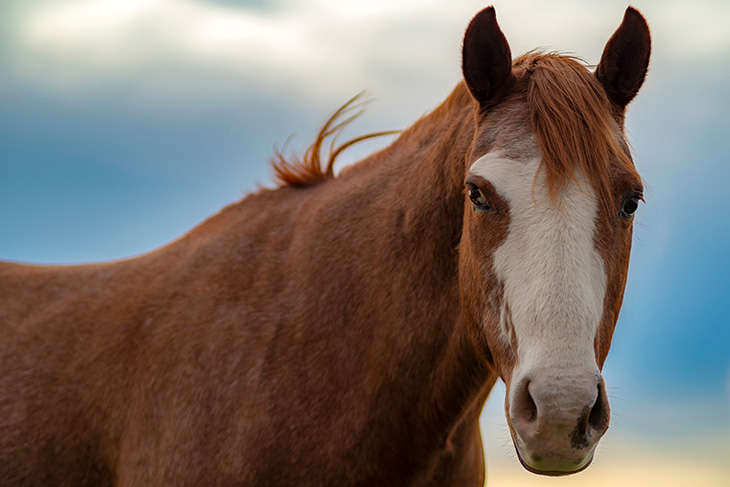
Horses need up-to-date West Nile virus vaccinations
Monday, June 14, 2021
Media Contact: Donald Stotts | Agricultural Communications Services | 405-744-4079 | donald.stotts@okstate.edu
Horses account for about 97% of reported non-human mammalian cases of West Nile virus encephalitis, according to the American Association of Equine Practitioners, underscoring the need for horse owners to employ sound animal-health-management strategies.
West Nile virus can cause encephalitis, which is inflammation of the brain. The virus can also cause meningitis, an inflammation of the lining in the brain and spinal cord, in people and horses. The virus has been identified throughout most of North America, from Canada into Mexico.
“Adult horses that have been vaccinated previously should be revaccinated annually in the spring,” said Kris Hiney, Oklahoma State University Extension equine specialist. “Horses that have never been vaccinated or that have an unknown vaccination history will likely need a series of vaccinations. Vaccines need to be given prior to a horse catching the disease.”
OSU Extension recommendations are for horse owners and equine managers to consult with their local large animal veterinarian as there are different vaccines available on the market.
The preferred strategy for mares is to vaccinate before they become pregnant. Limited studies have been performed that examine vaccinal protection against West Nile in pregnant mares, with only one of the currently licensed West Nile vaccines being labeled as safe to use.
“Again, consult with your local veterinarian,” Hiney said. “Common recommendations are to initiate a primary vaccination series immediately in pregnant mares that have never been vaccinated. Foals born from unvaccinated mares typically begin a vaccination series at around three months of age, while those born from vaccinated mares typically begin getting their series of shots at about four months of age.”
Young horses and older horses are most at risk for contracting the West Nile virus, she said. Hiney recently provided additional insights about West Nile virus in horses on the agricultural television show SUNUP.
The most common signs of West Nile virus infection in horses may include:
- Lack of coordination, even leading to stumbling
- Weakness in the animal’s limbs
- Partial paralysis
- Muscular twitching
- Even death, in some cases
“As a number of highly contagious and non-contagious diseases can present with neurologic symptoms, always consult a veterinary immediately if your horse shows neurologic symptoms,” Hiney said.
Studies and anecdotal evidence suggest fever only occurs in a quarter of cases. A horse will exhibit signs within 15 days of being bitten. West Nile virus infections are most common from May to October. The virus is transmitted by many different mosquito species — which vary geographically. Predictions as to the severity of a viral outbreak is difficult to predict given the regional variations.
“Treatment is important for any horse with West Nile virus,” Hiney said. “The effect the virus has on a specific horse will determine if home or clinical care is warranted. All treatment protocols should be conducted under the direction of a veterinarian.”
Recovery times depend on the health and age of an infected horse. Data indicates about two out of three horses infected with West Nile virus will survive but may suffer long-term effects. Horses are humanely euthanized only when it’s determined they will not be able to recover.
West Nile virus is not directly contagious from horse-to-horse or horse-to-human, so quarantining the animal is not necessary. Infected horses simply do not circulate a significant amount of virus in their blood.
